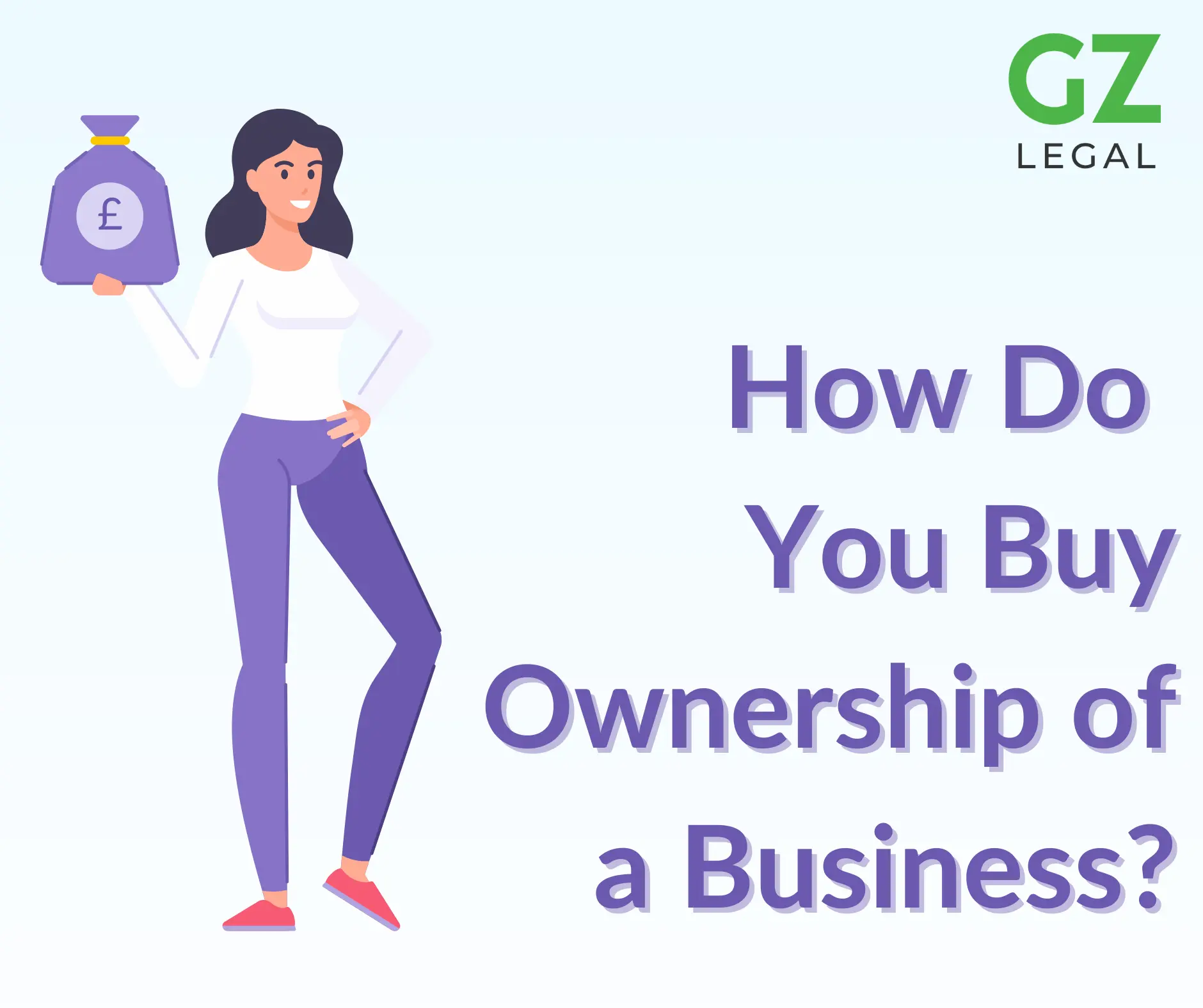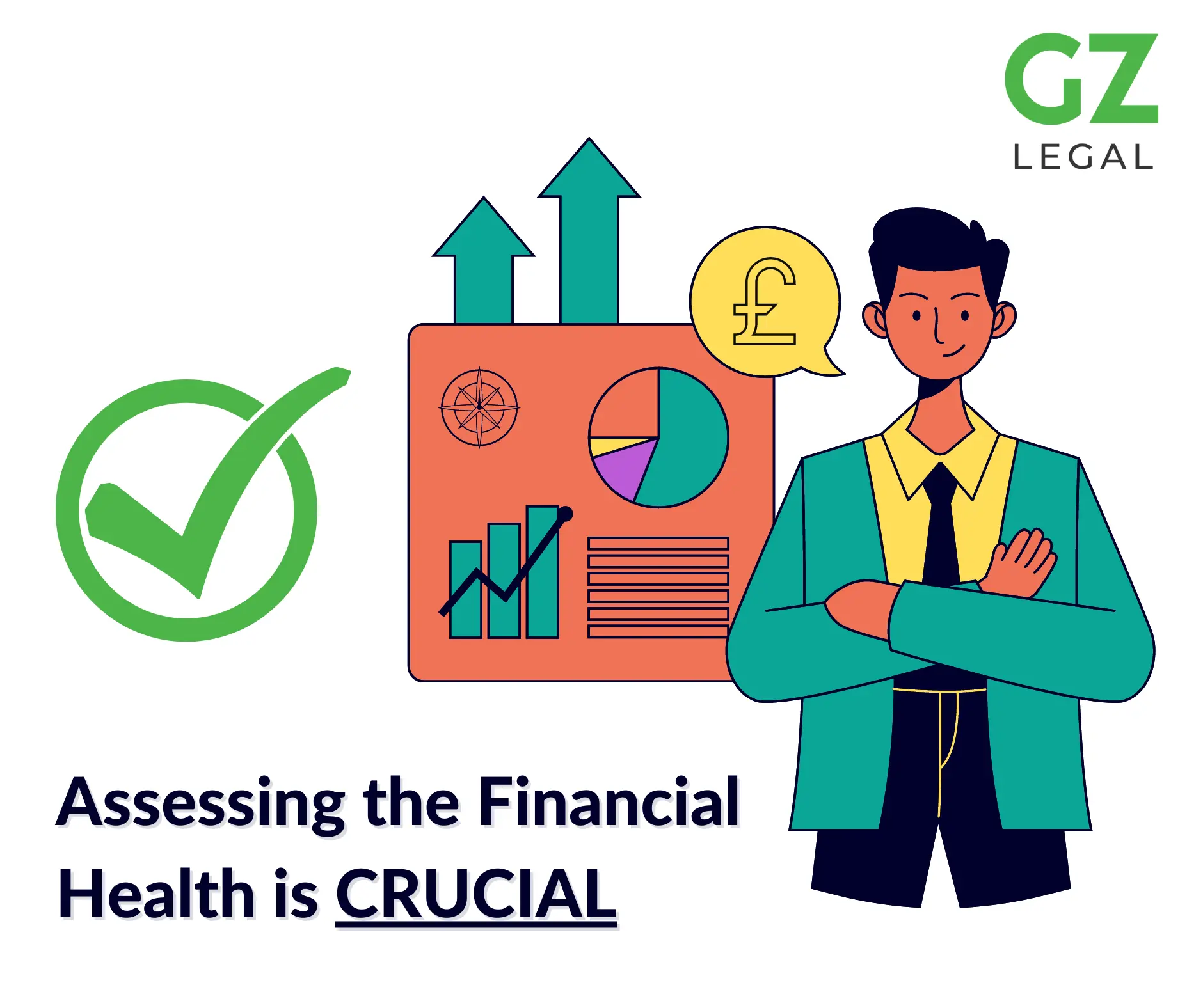Malcolm ZoppiSun Oct 15 2023
How Do You Buy Ownership of a Business?
Buying a business doesn’t always have to be so daunting. Learn about the process and what to look out for in this blog!

Entering the world of business ownership can be an exciting and potentially lucrative endeavour. There are several ways to claim ownership of a business, such as starting a new enterprise, investing in a franchise or purchasing an existing business outright. In this article, we will explore the process of buying ownership of a business, which often proves to be the most viable and advantageous option.
Buying an existing business comes with numerous benefits, including established clientele, tried-and-tested systems, existing employees, and a proven track record of success. While this may seem like a straightforward process, there are several critical aspects to consider, such as determining the type of ownership, conducting due diligence, understanding the financials, and managing the post-purchase operations. Each step of the acquisition process is crucial to ensure a smooth transition and long-term success in your new venture.
Key Takeaways
- Buying an existing business can offer a viable route to ownership with several advantages
- Consider essential factors such as budget, type of ownership, and the business’ financials
- Ensure a smooth transition by understanding the acquisition process and post-purchase management
Why Buy an Existing Business
Advantages and Disadvantages
When you’re considering buying a business, it’s essential to weigh the pros and cons. Acquiring an existing business often comes with advantages like a loyal customer base, established marketing and sales strategies, and ongoing cash flow. This makes it easier to obtain funding and improve or grow the business. However, there may be disadvantages, such as inherited issues or potential hidden problems. It’s crucial to be aware of these factors in order to make an informed decision.
Brand Recognition
One significant benefit of purchasing an existing business is the established brand recognition. This means the company’s name, logo, and reputation are already familiar to existing customers, which can lead to increased trust and easier market penetration. You won’t have to start building your brand from scratch, and customers are more likely to feel comfortable purchasing from a recognised business.
Existing Customer Base
A key advantage of buying an existing business is the pre-existing customer base. These customers have already demonstrated a demand for the products or services the business offers, and they usually require less marketing effort to retain compared to acquiring new customers. By focusing on maintaining and enhancing customer relationships, you can potentially increase revenue and ensure the continuity of the business.
Control
Another benefit of buying an existing business is the control you gain over the company’s direction. As the new owner, you can make strategic decisions to improve or expand the business based on your vision and goals. This level of control allows you to shape the business’ future and potentially create a more successful enterprise than if you had started from scratch. In addition, you can leverage the existing resources, staff and infrastructure to implement changes more efficiently and effectively.
Remember, it’s important to do thorough legal due diligence on a potential business purchase, and seek appropriate legal and financial advice to ensure that your investment decision is sound and well-informed.
Assessing Your Budget
Investment
When looking to buy ownership of a business, it’s essential to assess your budget and determine how much you’re willing to invest. Start by evaluating your current financial situation and any available funds you have for investing. Consider your savings, available cash, stocks, property, or any other assets that could potentially be used to fund the business’ purchase price.
It’s also important to determine how much risk you’re willing to take on, as this may impact the amount you’re willing to invest. Additionally, research different financing options, such as bank loans, seller financing, investor funding, or vendor financing, to help supplement your budget if needed.
Cash Flow Method
One way to assess your budget is through the cash flow method. It involves analysing the potential business’s historical cash flows to determine its value so don’t be afraid to ask the current owner for them. Most businesses, even small businesses, should have this information readily available. Begin by reviewing the business’ financial statements and identifying its cash inflows and outflows. Then, create a cash flow projection for the coming years, taking into account any trends, seasonal fluctuations, or growth opportunities.
Next, calculate the business’s net present value (NPV) by discounting future cash flows to their present value, using a chosen discount rate. Comparing the NPV with your initial investment will give you an idea of the profitability of the business and whether it’s a worthwhile investment. Keep in mind that this method relies on accurate financial data and reasonable assumptions, so it’s essential to conduct thorough due diligence before finalising your investment decision.
By carefully assessing your budget using investment and cash flow methods, you’ll be better prepared to make an informed decision when purchasing ownership of a business. Take your time to thoroughly research and understand the different factors that impact your budget and the business’s value, as these will ultimately influence the likelihood of achieving a successful outcome.
Determining the Type of Ownership
When considering purchasing a business, it’s important to first understand the different types of business ownership. This will help you decide what kind of venture to invest in and how it can be incorporated. Below, we’ll explore three common types of business ownership: sole trader, partnership, and limited liability companies.
Sole Trader
A sole trader is the simplest type of business ownership where only one person is responsible for it. In this structure, you’re the sole owner and operator of the business, and all profits and losses are directly yours. This type of ownership offers you complete control over the decision-making and direction of the business.
However, your personal assets are not legally separate from the business, making you liable for any debts or legal issues the business may face. To buy ownership in a sole trader, you will need to negotiate and purchase the business outright from the existing owner.
Partnership
In a partnership, at least 2 entities (individuals or companies) join forces to set up and run a business together. Profits and losses are divided amongst partners based on their agreed-upon share of ownership. There are two main types of partnerships: general partnerships and limited partnerships.
General partnerships involve shared responsibilities for business assets and liabilities, meaning that each partner is responsible for all business debts and legal issues. Limited partnerships, on the other hand, have at least one general partner responsible for unlimited liability, while other partners have limited liability based on their investment.
When acquiring ownership in a partnership, you will have to negotiate with the existing partners to purchase a portion of the business. This might involve buying out a retiring partner or purchasing additional shares from existing partners.
Limited Liability
A limited liability company is a very common method of business ownership in the UK. A company is a separate legal entity from its owners (known as members, or shareholders), providing them with limited liability protection for their personal assets.
As an owner of a company, you’re entitled to a share of the profits based on your percentage of ownership but are not held personally liable for the company’s debts. To buy ownership in a company, you’ll need to negotiate a sale of membership interests (their shares) with the existing members or purchase new shares directly from the company. This process may depend on the specific rules set forth in the company’s operating agreement.
By understanding these three types of business ownership, you can make a more informed decision when considering purchasing a business and becoming a business owner yourself.
Exploring the Marketplace
As you consider buying your own business, it’s crucial to explore the marketplace and identify interesting opportunities. This includes researching competitors, assessing the brand, and evaluating the stock and equipment of potential acquisitions.

Competitors
First things first, identify your potential competitors in the market. This helps you understand the industry landscape and your target business’ position within it. You can analyse competitors’ strengths and weaknesses to determine areas where you can excel or that need improvement. Marketing tactics play an essential role here, allowing you to differentiate from the competition. For instance, you can explore:
- Their unique selling propositions
- Target demographics
- Market share
- Pricing strategy
Brand
Assessing the brand of a business you’re interested in is vital, as it could be one of the main reasons you consider a purchase. Think about the following aspects:
- Brand reputation and recognition
- Existing customer base and loyalty
- Marketing and social media presence
- Intellectual property, trademarks, and patents
Remember, strong branding can influence customers’ purchasing decisions and help you stand out from competitors. It’s essential to ensure a smooth transition for the brand when acquiring a business.
Inventory and Equipment
Finally, it’s important to evaluate the inventory and equipment associated with the business you wish to buy. Thoroughly assess the assets to ensure they are well-maintained and suitable for your needs. Points to consider include:
- Condition and age of the equipment
- Suitability for current and future operations
- Maintenance and replacement costs
- Inventory turnover and stocking practices
A professional business broker can assist you in navigating the marketplace, providing valuable insights into potential acquisitions and making informed decisions. Their expertise can streamline the process, making it more efficient and increasing the likelihood of a successful purchase. Keep this in mind as you explore the market and narrow down your options.
Understand the Business’ Financials
Before you proceed with purchasing ownership of a business, it is crucial to have a clear understanding of the business’s financial situation. This will involve analysing various elements such as income tax, corporation tax, and accounting practices.

Corporation Tax
One of the essential aspects you need to consider if you’re buying a company is corporation tax. This tax is levied on the company’s profits. Evaluate the business’ historical corporation tax payments and liabilities. Understanding the corporation tax commitments will help you plan for future expenses and ascertain whether the business has been managing its tax obligations efficiently. Keep in mind that rates may vary depending on the company’s profits and the given tax jurisdiction.
Accounting
Accounting practices play a vital role in the management and growth of a business. When considering purchasing ownership in a business, review the business’ financial statements such as balance sheets, income statements, and cash flow statements. Examine their accounting practices to identify potential risks and opportunities.
- Balance Sheet: This statement exhibits the business’s financial health by displaying its assets, liabilities, and equity at a specific point in time. Thoroughly check the balance sheet for any red flags or inconsistencies that may affect your decision to acquire ownership in the business.
- Income Statement: This statement summarises the company’s revenues, expenses, and net income over a specific period. Investigate the business’s profitability and revenue streams to gauge its potential for growth and sustainability.
- Cash Flow Statement: Assessing the cash flow statement will provide insights into the company’s cash inflows and outflows, enabling you to determine whether the business has sufficient cash reserves to cover its daily operations and financial obligations.
Gaining a comprehensive understanding of the business’s financials is a critical step in the process of purchasing ownership of a business. By doing so, you will be better equipped to make informed decisions and mitigate potential risks, ultimately ensuring a successful investment.
The Acquisition Process
The process of buying ownership of a business can be complex, but understanding key steps and requirements is crucial for a successful transaction. Here are some important components to consider during the acquisition process.
Contracts
When acquiring a company, it is essential to review and understand all existing contracts. These may include agreements with suppliers, customers, and employees. You should assess these contracts to determine their terms, obligations, and any potential liabilities. If necessary, consult a legal advisor to help you review and negotiate contracts during the acquisition. This is important to ensure that you are aware of contractual commitments and to avoid any potential legal issues after taking ownership of the business.
Licences and Permits
Before acquiring a business, you should investigate the relevant licences and permits required for its operation. Licences and permits may include those related to specific industries, such as food service or manufacturing, as well as general or business licenses and permits. When taking ownership of a business, it is vital to ensure that all licences and permits are up to date and compliant with regulations. You may need to transfer existing licences or apply for new ones, and ensure you are aware of all regulations and fees involved.
Organisational Documents
During the acquisition process, it’s important to obtain and review the target business’ organisational documents. For a company, these may include:
- Incorporation Documents: Outline the company’s legal structure and include information on its formation, purpose, and ownership.
- Articles of Association: Detail the rules and procedures for how the company is governed and managed, including board meetings and voting procedures.
- Shareholder agreements: Establish the rights and responsibilities of shareholders, including how shares can be bought, sold, or transferred.
- Financial records: Offer insight into the company’s financial health, such as balance sheets, profit and loss statements, and tax records.
Sole Traders are unlikely to have any organisational documents, due to their simple structure. Partnerships, on the other hand, may have a partnership agreement in place between the partners and it is important to review its terms carefully as you may need to be a party to it when becoming a partner yourself.
By diligently reviewing these documents, with the aid of professional advice, you can gain a comprehensive understanding of the business’s structure, operations, and financial stability. This information will help you make informed decisions and navigate the acquisition process effectively.
Frequently Asked Questions
What are the steps to acquiring an existing business?
To acquire an existing business, you should first identify businesses for sale matching your criteria. Then, conduct thorough due diligence on the prospective businesses, examining their financials, operations, and market position. Next, prepare yourself for negotiations by determining the right business valuation and finding suitable financing options. Secure necessary legal and financial assistance and engage in the negotiation process. Once a deal has been agreed upon, perform due diligence to uncover any hidden risks and finalise the transaction with appropriate legal documentation.
What financial options are available for purchasing a company?
Various financing options are available when purchasing a company, including business loans from banks or other credit providers, seller financing, where the seller grants you a loan for the acquisition, and using your own money from personal savings or investments. You may also explore crowdfunding, partnering with investors, or obtaining a loan from friends and family.
How do you determine the value of a business before buying it?
To determine the value of a business before purchasing, you can use several methods, such as the asset-based approach, which evaluates the tangible and intangible assets, the income-based approach, which analyses the company’s cash flow, and the market-based approach, comparing the business with similar ones sold in the market. A professional business valuation expert can help provide a fair and accurate assessment of the company’s worth.
What legal requirements must be considered when purchasing a business in the UK?
In the UK, legal requirements for purchasing a business may include obtaining necessary licences and permits, undertaking a property lease transfer if applicable, registering the business with Companies House, complying with employment laws, such as TUPE Regulations, and ensuring all tax obligations are met, including VAT registration and corporation tax. Seek guidance from a legal professional to ensure compliance.
What factors should be assessed in a business acquisition checklist?
A business acquisition checklist should cover several due diligence areas, including a thorough review of the target company’s financials, understanding potential liabilities, examining business operations and management structures, analysing the market and customer base, assessing the business culture and employee relations, and evaluating the value and condition of tangible assets. Additionally, consider any potential strategic benefits, such as growth opportunities, retaining key employees, as well as legal and regulatory compliance.
How can a foreigner buy a business in the UK?
As a foreigner, you can buy a business in the UK by following similar steps as a UK citizen would: identify a suitable business, perform research and assessments, secure financing, and negotiate the deal. However, as a non-UK citizen, you might need to obtain a Tier 1 Entrepreneur Visa, demonstrate sufficient funds to invest in the business, and provide evidence of your entrepreneurial experience. Seek advice from immigration experts and legal professionals for a seamless acquisition process.
Find out more!
If you want to read more in this subject area, you might find some of our other blogs interesting:
- Step-by-Step Guide on How to Transfer Shares to a Holding Company
- Breach of Settlement Agreement: Consequences and Remedies Explained
- Who Gets the Money When a Company is Sold?
- What is a Counter Offer in Contract Law? Explained Simply and Clearly
- Understanding the Costs: How Much Do Injunctions Cost in the UK?